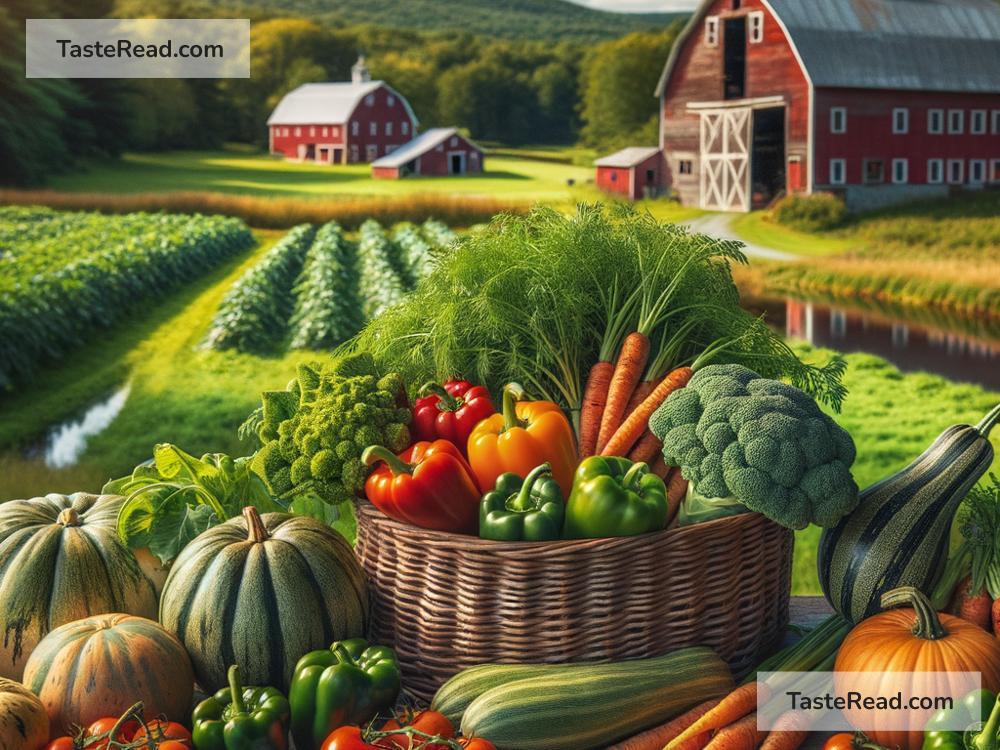Celebrating the Craft of Homegrown Farm Vegetables in Vermont, USA
Vermont, a state known for its stunning green hills and small-town charm, is also famous for something quite special: its homegrown farm vegetables. From the lush valleys to the mountain slopes, Vermont farmers have mastered the art of growing fresh, high-quality produce. These vegetables not only nourish the locals but also tell a story of hard work, connection to the land, and the importance of sustainable farming.
The Importance of Farm Vegetables in Vermont
In Vermont, farming is more than just a job—it’s a way of life. The state’s fertile soil, clean air, and access to water make it a great place to grow vegetables. From sweet corn to juicy tomatoes, crisp kale to golden squash, the variety of vegetables grown in Vermont is impressive. These vegetables are a cornerstone of Vermont’s food culture, showing up in everything from hearty soups to colorful salads on dinner tables across the state.
Local farm vegetables have a deeper meaning here. They support the community’s economy, protect the environment, and provide healthy, fresh food that is free of unnecessary chemicals. For many Vermonters, knowing where their food comes from and supporting local farmers are values they live by.
Small Farms, Big Impact
Unlike large industrial farms found in other parts of the country, Vermont is home to many small, family-run farms. These farms are typically operated by people who pour their energy, creativity, and love into their crops. Farming in Vermont is often a year-round effort. During the growing season, farmers are busy planting, weeding, and harvesting their crops. In the colder months, some farmers dedicate their time to planning for the next season, growing winter vegetables like kale and carrots, or preparing preserved goods like pickles and jam.
Farmstands and farmers’ markets are common sights in Vermont towns. These places are more than just spots to buy vegetables—they are hubs of community connection. People come to chat with farmers, share recipes, and talk about what’s in season. Many farms also offer Community Supported Agriculture (CSA) programs, where families can sign up to receive weekly boxes of fresh produce. CSAs are wonderful because they give families access to healthy food while supporting local farms directly.
Vermont’s Love for Organic Vegetables
Vermont leads the way in organic farming. Many farms in the state grow their vegetables without the use of synthetic chemicals, pesticides, or fertilizers. Instead, they focus on natural methods, such as crop rotation, composting, and using cover crops to keep the soil healthy. This approach not only benefits the environment but also results in vegetables that taste better and are healthier to eat.
When you taste an organic carrot from Vermont, it doesn’t just taste like a carrot—it tastes like sunshine, clean soil, and fresh mountain air. Farm-fresh organic vegetables are full of flavor, making them a favorite of chefs and food lovers both in Vermont and beyond.
Seasonal Eating: A Vermont Tradition
Vermont celebrates the seasons through its vegetables. Each time of year brings new produce to enjoy. Spring is the season of tender greens like spinach and lettuce. In the summer, the fields are full of bright tomatoes, crisp cucumbers, and sweet peas. Fall signals the arrival of hearty root vegetables like potatoes, carrots, and beets, while winter provides produce like kale and squash that can withstand cold temperatures.
Eating seasonally is about enjoying vegetables at their freshest. It also helps support local farms that are growing what’s naturally available at that time of year. Many Vermonters appreciate their seasonal connection to food, as it allows them to feel more in tune with the changing environment around them.
The Return of Classic Cooking
Cooking with farm vegetables is a joy for many Vermonters. They use simple, timeless recipes to turn their fresh ingredients into delicious meals. For example, Vermont farmers take pride in making classic vegetable soups, roasting fresh seasonal vegetables, or creating salads bursting with flavor. These dishes highlight the true taste of Vermont’s soil and sunshine.
And let’s not forget Vermont’s love for combining farm vegetables with other local products. Cheddar cheese from nearby dairies, crusty bread from local bakeries, and syrup from the state’s famous sugar-maple trees often find their way into recipes alongside Vermont-grown vegetables. It’s truly a feast that brings together many local flavors.
The Future of Farming in Vermont
Vermont’s farmers face challenges, just like farmers everywhere. Climate change, unpredictable weather, and the cost of operating small farms are real concerns. However, the people of Vermont are dedicated to keeping their farming traditions alive. Programs that support farmers, teach young people about sustainable agriculture, and help farms adapt to changing conditions are paving the way for the future.
Vermont’s appreciation for fresh vegetables grown with care will never fade. Whether it’s through farm-to-table restaurants, CSA subscriptions, or backyard gardens, Vermonters are committed to celebrating the craft of homegrown farm vegetables.
Conclusion
The farm vegetables grown in Vermont are more than just food—they are a symbol of community, sustainability, and pride. Every bite of a lettuce leaf or every spoonful of vegetable stew carries the hard work of farmers and the beauty of Vermont’s land and seasons. By appreciating and supporting local farms, Vermonters are not just enjoying fresh produce—they are preserving a way of life that honors the land, the farmers, and the future.
So, the next time you visit Vermont, be sure to stop by a farmstand or farmers’ market. Taste the vegetables, meet the farmers, and experience the joy of truly fresh, homegrown food. You’ll walk away not just with a basket of delicious produce, but with a deeper understanding of why Vermont is such a special place.


